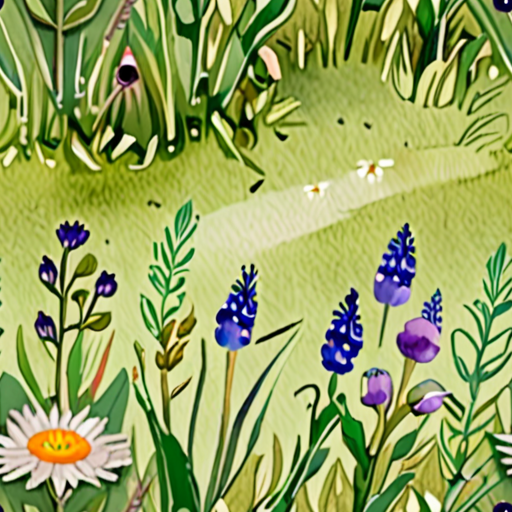As a homeowner looking to cultivate a lush green yard without relying on harsh chemicals, mastering organic garden maintenance is crucial for achieving a thriving and sustainable landscape. With the right approach, you can enjoy a beautiful and healthy lawn while minimizing your environmental footprint. From understanding local resources and budget-friendly strategies to implementing effective lawn care programs and DIY methods, there are numerous ways to maintain a chemical-free lawn.
Fertilizing Your Organic Garden
As an heirloom gardener, I understand the importance of nurturing your plants with care and attention.
- For optimal growth, it’s essential to strike a balance between feeding your plants and avoiding over-fertilization.
- The frequency of fertilization depends on various factors, including soil type, plant variety, and climate conditions.
- In general, it’s recommended to fertilize your organic garden every 3-4 weeks during the growing season.
- However, if you’re using clay soil, you may need to adjust the frequency to every 4-6 weeks after planting.
- On the other hand, if your soil is rich in organic matter, you can get away with fertilizing less frequently, ideally every 4-6 weeks.
When choosing a fertilizer, opt for organic options that promote healthy microbial activity and minimize chemical residues.
- Compost tea is an excellent choice, as it provides beneficial microbes that enhance soil fertility and plant health.
- You can also consider using fish emulsion or bone meal, which release nutrients slowly and promote root development.
- Avoid synthetic fertilizers, as they can harm beneficial microorganisms and contaminate soil and water.
Remember, fertilization is just one aspect of maintaining a thriving organic garden.
- Maintain a balanced ecosystem by incorporating crop rotation, companion planting, and integrated pest management techniques.
- Monitor your soil pH levels and adjust accordingly to ensure optimal nutrient availability.
- Keep your garden well-watered, but avoid overwatering, which can lead to nutrient leaching and soil erosion.
By adopting these best practices, you’ll be well on your way to cultivating a lush, productive, and sustainable organic garden.
The Most Common Mistakes of First-Time Gardeners
As a seasoned gardener, I’ve seen many beginners make the same mistakes that can hinder their progress and lead to frustration.
- Lack of Research and Planning
- Inadequate Soil Preparation
- Insufficient Watering
- Poor Plant Selection
- Inadequate Sunlight and Air Circulation
- Failing to Monitor Pests and Diseases
- Not Rotating Crops
- Ignoring Seasonal Changes
- Not Keeping Records
Before planting, it’s essential to research the type of plants you want to grow, their requirements, and the climate conditions in your area. A well-planned garden layout can save you time and effort in the long run.
A healthy soil foundation is crucial for plant growth. Test your soil pH levels and amend it accordingly. Add organic matter like compost or manure to improve soil fertility and structure.
Overwatering or underwatering can be detrimental to your plants. Make sure to water your plants regularly, but avoid excessive watering that can lead to root rot and other problems.
Choose plants that are suitable for your climate, soil type, and level of maintenance. Some plants may require more attention than others, so select varieties that fit your lifestyle.
Most plants need sufficient sunlight and air circulation to thrive. Ensure that your garden receives adequate sunlight and consider pruning nearby trees or shrubs to improve airflow.
Regularly inspect your plants for signs of pests or diseases. Use organic or integrated pest management methods to control infestations and prevent the spread of diseases.
Rotating crops helps maintain soil fertility, prevents pests and diseases from building up, and promotes healthy plant growth. Plan your crop rotation schedule according to the specific needs of each plant variety.
Be aware of seasonal changes and adjust your gardening routine accordingly. For example, prune plants during dormant seasons and fertilize them during active growth periods.
Keep a gardening journal to track your progress, note weather patterns, and record plant performances. This will help you identify areas for improvement and make informed decisions for future gardening endeavors.
By avoiding these common mistakes, you’ll be well on your way to becoming a successful gardener. Remember to stay patient, observe, and adapt to the unique challenges and opportunities presented by your garden.
What to Spray on Organic Gardens
When dealing with pests in an organic garden, there are several options available for treating infestations.
- Diluted Castile Soap: A mixture of castile soap and water can be effective against soft-bodied insects like aphids and whiteflies.
- Garlic Barrier: An extract of garlic mixed with water can be sprayed on plants to deter pests like spider mites and mealybugs.
- Natural Insecticides: Neem oil, pyrethrin, and Bt (Bacillus thuringiensis) are examples of natural insecticides that can be used to control a variety of pests.
- Companion Planting: Some plants, such as marigolds and nasturtiums, release chemicals that repel certain pests and can be planted alongside vulnerable crops.
- Physical Barriers: Fine mesh or fine netting can be placed around plants to prevent pests like aphids and whiteflies from reaching them.
It’s essential to note that these methods may need to be combined or rotated to effectively manage pest populations.
Additional Tips for Pest Control
- Inspect Plants Regularly: Regular inspections can help identify pest problems early on, making it easier to treat them before they become severe.
- Encourage Beneficial Insects: Attract beneficial insects like bees, butterflies, and ladybugs, which prey on pests and can help maintain a balanced ecosystem.
- Maintain Good Gardening Practices: Keep gardens clean, remove weeds, and avoid overwatering, which can contribute to pest problems.
Preventing Future Infestations
To minimize the risk of future infestations, consider implementing integrated pest management (IPM) strategies, which combine physical, cultural, biological, and chemical controls to maintain a healthy and balanced garden ecosystem.
Increasing Organic Matter in Your Garden
To boost the health and fertility of your garden, incorporating organic matter into the soil is essential.
- Add compost made from kitchen scraps, leaves, and grass clippings to enrich the soil with nutrients and beneficial microbes.
- Incorporate well-rotted manure from herbivores like horses or cows to add humus and improve soil structure.
- Use green manures like legumes or clover to fix nitrogen in the soil and attract pollinators.
- Spread mulch around plants to retain moisture, suppress weeds, and regulate soil temperature.
- Avoid tilling the soil too deeply, as this can damage soil structure and disrupt microbial communities.
- Consider using cover crops to protect the soil during periods of dormancy and add organic matter when they’re incorporated.
- Monitor pH levels and adjust accordingly to ensure optimal conditions for plant growth.
- Rotate crops seasonally to maintain soil fertility and prevent nutrient depletion.
- Harvest rainwater and use it to supplement irrigation needs, reducing reliance on synthetic fertilizers.
- Implement integrated pest management techniques to minimize chemical usage and promote ecosystem balance.
By adopting these strategies, you’ll be able to increase organic matter in your garden, supporting healthy plant growth and a thriving ecosystem.
The Fastest Way to Add Nutrients to Soil
To add nutrients to soil quickly, consider implementing these methods:
- Compost Tea : Brew a liquid solution of compost tea by steeping compost in water. This method allows beneficial microbes to infuse into the soil, enriching its nutrient profile.
- Worm Castings : Worm castings, also known as vermicomposting, involve using worms to break down organic matter into a nutrient-rich fertilizer.
- Bokashi : Bokashi is a fermentation process that converts organic waste into a nutrient-dense fertilizer.
- Green Sand : Green sand is a type of glauconite that acts as a slow-release fertilizer, providing essential micronutrients to plants.
- Manure Tea : Similar to compost tea, manure tea involves steeping animal manure in water to create a nutrient-rich liquid fertilizer.
When choosing a method, consider factors such as the type of soil, climate, and plant requirements. Some methods may require initial investment, but they can lead to long-term benefits for soil health and fertility.
For optimal results, combine these methods with regular soil testing and adjustments to pH levels, as well as incorporating cover crops and crop rotation to maintain soil biodiversity.
By implementing these strategies, you can effectively add nutrients to your soil and promote healthy plant growth.
Do Leaves Add Organic Matter to Soil?
As an avid gardener and advocate for sustainable agriculture, I can confidently say that leaves play a vital role in enriching our soil.
- Leaves are a rich source of nutrients, including carbon, nitrogen, phosphorus, and potassium, which are essential for plant growth and development.
- When leaves decompose, they release these nutrients into the soil, making it more fertile and conducive to healthy plant growth.
The process of leaf decomposition is a natural and essential part of the ecosystem. As leaves fall to the ground, they begin to break down through the actions of microorganisms, such as bacteria and fungi.
- These microorganisms feed on the cellulose and lignin in the leaves, releasing enzymes that further break down the organic matter.
- The resulting nutrient-rich humus is then absorbed by plants, supporting their growth and development.
In addition to adding nutrients to the soil, leaves also help to improve its structure and drainage. As they decompose, they create a network of pores and channels that allow water and air to penetrate the soil more easily.
This improved soil structure enables roots to grow deeper and stronger, allowing plants to access more water and nutrients.
So, to answer the question, yes, leaves do add organic matter to soil. In fact, they are a crucial component of a healthy and thriving ecosystem.
How to Utilize Leaf Compost in Your Garden:
- Add a layer of leaf compost to your garden beds to improve soil fertility and structure.
- Use leaf compost as a mulch to retain moisture and suppress weeds.
- Compost leaves in a dedicated bin or pile to create a nutrient-rich fertilizer for your plants.
Conclusion:
In conclusion, leaves are a valuable resource for gardeners and farmers alike. By utilizing leaf compost in our gardens, we can create a more sustainable and resilient ecosystem that supports healthy plant growth and development.





0 Comments